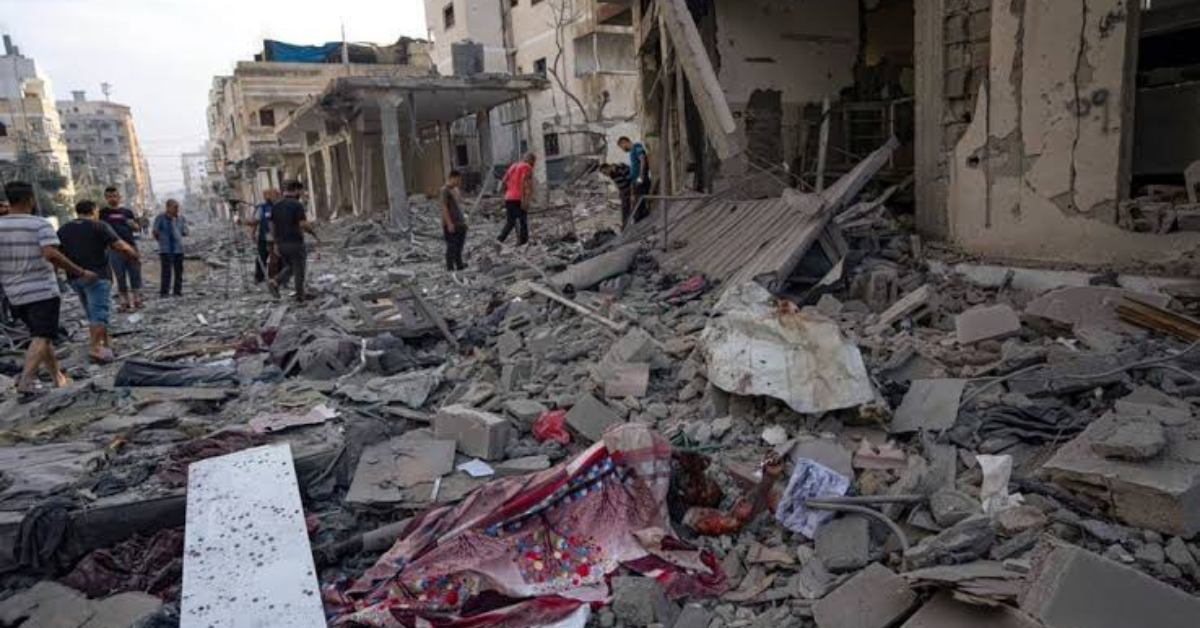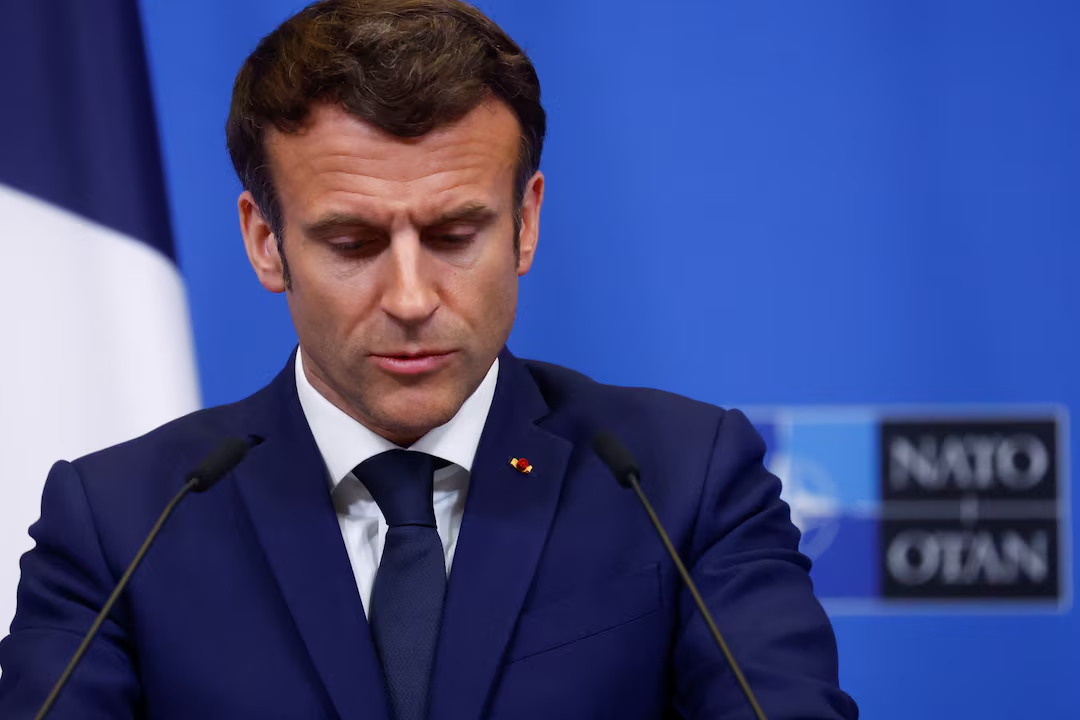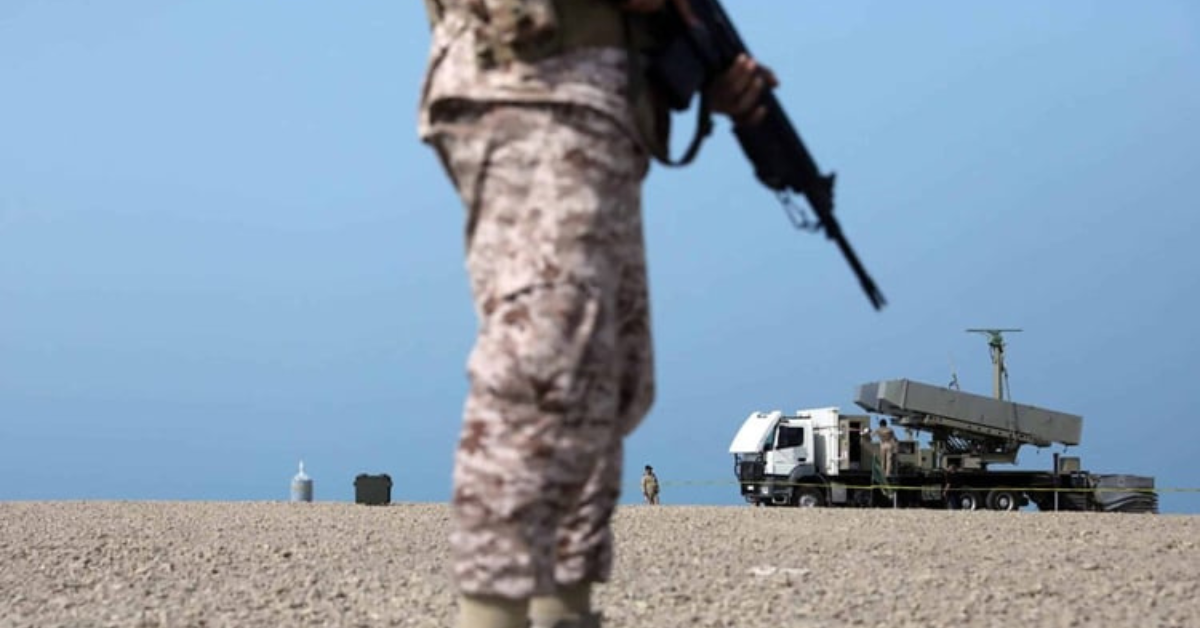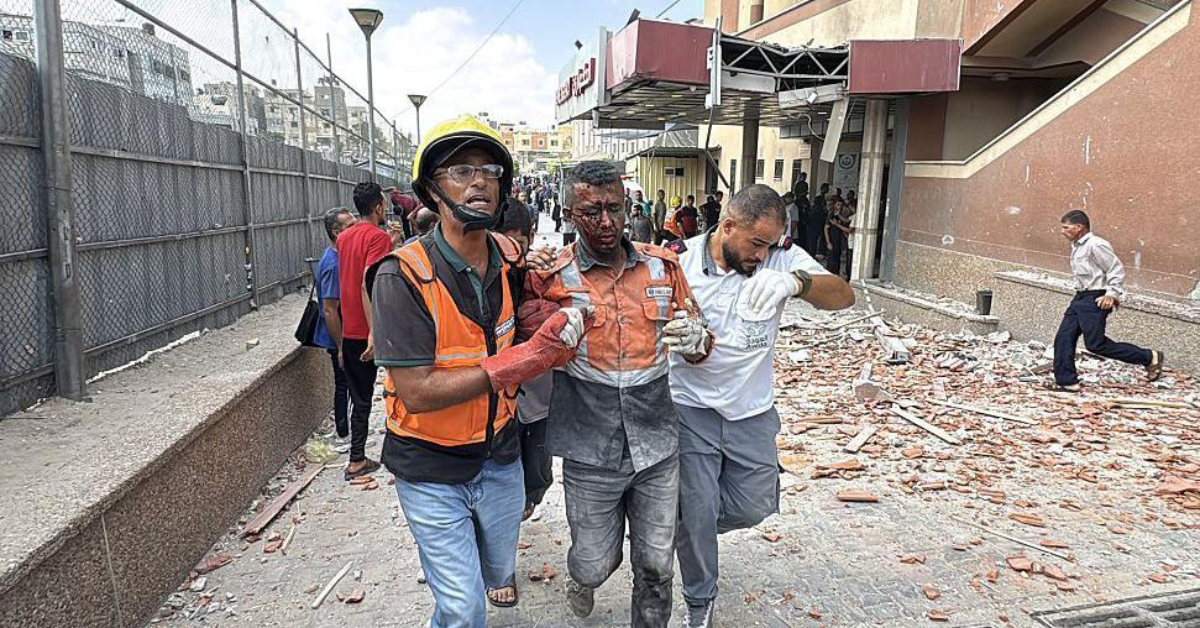Atia Ibnat Rifah: A region in the center of the Middle East that was formerly renowned for its vibrant history and rich culture is now linked to destruction, uprooting, and hopelessness. Gaza, a little landmass on the Mediterranean Sea, has come to represent misery. Its citizens have endured decades of blockade, frequent military attacks, and hardships in meeting even the most basic necessities of life. However, their opinions and narratives are frequently ignored in international debates. It is our moral obligation as human beings to speak up for the voiceless. We have the responsibility to stand with Gaza today and speak for those who lack a voice.
A Land Under Siege
Since 2007, Israel has imposed a blockade on Gaza, severely restricting the movement of people, goods, fuel, and pharmaceuticals. With almost two million residents, this 365 square kilometer region is among the most densely populated places on Earth. Basic infrastructure, including electricity, water, and healthcare, is constantly failing as a result of the strain. Even before the latest waves of violence, children in Gaza were growing up in a world of broken aspirations and unmet promises. According to UNICEF, almost 80% of Gaza’s population is dependent on humanitarian aid. But the rest of the world has just looked on.
The 2023 Onslaught: A Humanitarian Catastrophe
Violence broke out again on October 7, 2023. Israel began relentless military campaigns in Gaza in response to an attack by Hamas. Not just their so called militants were the focus of the airstrikes; media outlets, refugee camps, schools, and hospitals all were hit. More than 55,000 individuals have died, primarily women and children, by the Israeli attacks. Survivors are living in unsafe conditions for human habitation, and thousands more are buried beneath debris. The civilian shelter, Al-Ahli Baptist Hospital, was reduced to ashes. Whole communities have become ghost towns, including Rafah, Khan Younis, and Shujaiya. When every path leads to death, where should a mother take her kids?
Silence of the Powerful
Perhaps the greatest tragedy is not only the bombs, but the silence. Major world powers like the U.S., U.K., and parts of the EU have provided political and military support to Israel, framing the conflict as one of “self-defense.” But how can bombing residential buildings and starving children ever be justified as defense?
International organizations like the United Nations have condemned the actions, but without enforcement, their words fall flat. The United States has vetoed multiple ceasefire resolutions in the UN Security Council, isolating itself from the global call for peace.
Life in the Rubble
To truly understand Gaza, one must look beyond statistics. Numbers do not show the story of Amal, a 7-year-old girl who lost both her parents in an airstrike and now draws pictures of war in her tent. They do not show Youssef, a father who walks miles daily to collect clean water for his infant daughter. They do not show the 20-year-old medical student who treated wounded children with shaking hands while bombs fell outside.
Even amidst the horror, Gazans show remarkable resilience. Volunteers dig through rubble to find survivors. Doctors perform surgeries without anesthesia. Teachers run temporary schools in ruins. Gaza is not just a place of death, it is also a place of unbreakable spirit.
The Role of Media: Selective Outrage
Media coverage of Gaza has been inconsistent, often western biased, and at times completely silent. While every human life should be equal, media portrayal often values some lives over others. Palestinian voices are ignored, their pain rationalized, and their resistance demonized.
Social media, however, has become a tool for Gazans to speak out. Through platforms like Instagram, X (formerly Twitter), and TikTok, young Palestinians are showing the world what mainstream outlets do not. But even here, many face censorship or account suspensions.
Where Are the Human Rights?
Human rights are not a luxury; they are a necessity. The right to life, to safety, to education, to health care — all these are being denied in Gaza. Article 3 of the Universal Declaration of Human Rights says, “Everyone has the right to life, liberty and security of person.” Yet, none of these apply to Gazans today.
International law prohibits collective punishment. The Geneva Conventions outline the protection of civilians in war. And yet, the killing of entire families continues with impunity.
Why is the world failing to uphold its own laws when it comes to Palestinians?
What Can Be Done?
We must move beyond hashtags and profile pictures. Real action is needed:
Political Pressure: Authorities need to be responsible. People globally must urge their leaders to cease backing war crimes and advocate for a real, urgent, and lasting ceasefire.
Humanitarian Assistance: Increased support needs to arrive in Gaza, particularly food, medicine, and fuel. Aid organizations should be safeguarded, not attacked.
International Justice: War crimes need to be examined and prosecuted. The International Criminal Court should operate impartially and promptly.
Elevate Palestinian Narratives: Allow Palestinians to share their own experiences. Hear them out, share their voices, back their art, music, and traditions.
Boycotts and Divestment: Individuals can compel businesses and organizations to retract financial backing from groups involved in the occupation and oppression
Bangladesh’s Role and South Asian Solidarity
South Asia must speak as a united voice. In the Global South, we know what it means to be ignored or used in power games. We must rise above silence and demand justice, not charity, for Palestinians.
A Call to Conscience
The question is not whether we support Palestine or Israel. The question is whether we support justice or injustice. Whether we support life or death. Whether we allow children to grow or bury them in silence.
Being silent in times of oppression is siding with the oppressor. In the words of Archbishop Desmond Tutu, “If you are neutral in situations of injustice, you have chosen the side of the oppressor.”
Gaza does not need our pity. It needs our solidarity. Its people are not victims, they are survivors. But they should not have to survive bombs, hunger, and betrayal alone.
Let us be their voice. Let us uphold their stories when the world tries to erase them. Let us not wait for history to judge us. Let us act now — with compassion, with courage, and with clarity.
Be a voice for the voiceless. Be human.
*Writer: Student, Department of International Relations, University of Rajshahi, Bangladesh



